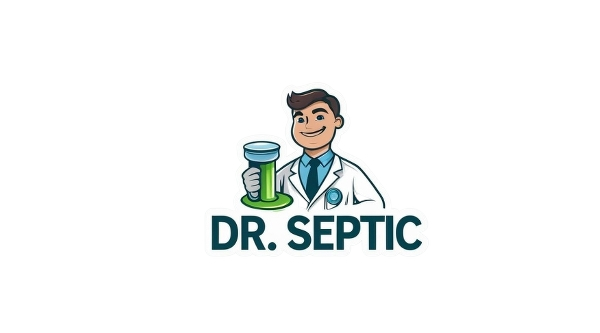Drano and Septic Systems: What You Need to Know Before You Pour
If you’re dealing with a clogged drain, reaching for a bottle of Drano or another chemical drain cleaner might seem like the easiest solution. However, if your home uses a septic system, you might be wondering if it’s safe to use Drano. Understanding the impact of chemical drain cleaners on your septic system is crucial to avoiding costly damage and ensuring your system continues to function properly. This article will address common concerns and provide safe alternatives for septic systems.
Is Drano Safe for Septic Systems?
Drano and similar chemical drain cleaners are formulated to dissolve clogs by breaking down hair, grease, soap scum, and other debris. While these products can be effective at clearing blockages, they may pose risks to your septic system.
- Chemical Composition: Drano contains harsh chemicals such as sodium hydroxide, sodium nitrate, and bleach. While these ingredients can effectively clear clogs, they can also harm the beneficial bacteria in your septic tank that are essential for breaking down waste.
- Impact on Bacteria: The bacteria in your septic tank play a critical role in digesting and breaking down solid waste. When these bacteria are exposed to harsh chemicals, their populations can be significantly reduced, leading to slower waste breakdown and potentially causing your tank to fill up faster.
- Potential for Pipe Damage: In addition to impacting your septic system, repeated use of chemical drain cleaners can erode your pipes, especially if they are older or made of materials like PVC. Over time, this can lead to leaks or even pipe failure, requiring expensive repairs.
Safe Alternatives to Drano for Septic Systems
If you’re concerned about the impact of Drano on your septic system, there are several safe and effective alternatives you can use to clear clogs without harming your septic tank:
- Natural Enzyme-Based Cleaners: Enzyme-based drain cleaners are a great alternative for septic systems. These products use natural enzymes and bacteria to break down clogs without harming the beneficial bacteria in your septic tank. They are safe for your pipes and the environment.
- Baking Soda and Vinegar: A tried-and-true method, pouring a mixture of baking soda and vinegar down the drain can help clear minor clogs. This combination creates a fizzy reaction that can break down grease and debris. Follow up with hot water to flush the drain.
- Manual Drain Cleaning Tools: Tools like a drain snake or plunger can effectively remove clogs without introducing chemicals into your septic system. A drain snake can reach deep into your pipes to remove blockages, while a plunger can help dislodge clogs close to the drain opening.
- Boiling Water: For grease-related clogs, boiling water can be surprisingly effective. Pouring a pot of boiling water down the drain can help melt and flush away grease buildup, clearing the clog without the need for chemicals.
- Regular Maintenance: Preventative maintenance is key to avoiding clogs. Regularly flushing your drains with hot water, avoiding pouring grease down the sink, and using drain screens to catch hair and debris can help keep your drains clear and your septic system healthy.
What to Do If You’ve Already Used Drano
If you’ve already used Drano or another chemical drain cleaner in your septic system, don’t panic, but take steps to mitigate any potential damage:
- Limit Further Use: Avoid using chemical drain cleaners again, and consider switching to safer alternatives as mentioned above.
- Monitor Your System: Keep an eye on your septic system’s performance. If you notice any signs of trouble, such as slow drains, foul odors, or sewage backups, contact a septic professional for an inspection.
- Add Beneficial Bacteria: To help restore the balance of bacteria in your septic tank, you can add septic-safe bacterial treatments. These products introduce additional bacteria into your system, aiding in waste breakdown and helping to counteract any damage caused by the chemicals.
- Schedule a Septic Inspection: If you’re concerned about the impact of the chemicals on your septic system, it may be wise to schedule an inspection. A septic professional can assess the health of your system and recommend any necessary maintenance or repairs.
Conclusion
While Drano and other chemical drain cleaners can effectively clear clogs, they are not the best choice for homes with septic systems. The harsh chemicals can harm the beneficial bacteria in your septic tank, leading to potential system failures and costly repairs. Fortunately, there are several safe and effective alternatives available that can help you clear clogs without jeopardizing your septic system’s health.
By choosing natural enzyme-based cleaners, baking soda and vinegar, or manual tools, you can keep your drains clear while protecting your septic system. If you’ve already used Drano, taking steps to restore your system’s bacterial balance and monitoring for any signs of trouble can help mitigate potential damage. For ongoing peace of mind, consider regular septic maintenance and inspections to ensure your system remains in optimal condition.
